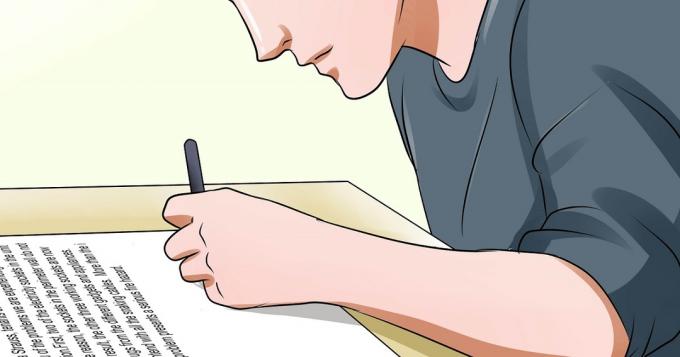We selected in this post some models of lesson plan ready, with tips and suggestions for printing and downloading in PDF or WORD.
O class plan it is a working tool that specifies the expected behaviors of the student, the contents, the didactic resources and the procedures that will be used for its realization. It seeks to systematize all activities that take place in the period of time in which teacher and student interact, in a dynamic of teaching-learning.
Index
Check out the following 3 ready-made lesson plan templates, editable for download in WORD:
Check out other lesson plan templates (clicking here).

Finished lesson plan: How to prepare your plan step-by-step
Check which areas of knowledge will be covered in classes.
The area of knowledge is related to different types of knowledge (Empirical, Philosophical, Theological and Scientific), which are gathered according to the nature of the object of investigation for teaching, research and practical applications. Ex:
The topic of the lesson should be related to the content of the class's teaching unit plans. Furthermore, the topic has to be linked to the general objective of the class. It can be presented in two ways: comprehensive or specific.
Clearly describe what you want to achieve as a result.
The specific objectives are the detailing of the general objective, that is, it presents a more concrete character, as it involves aspects that make it possible to reach the general objective. They must be clear, precise and concise and must start with verbs in the infinitive way.
(Teaching materials)
The idea for a class is to research different materials to be used during the class. For example, develop activities through a song heard on the radio, a phrase read on the outdoor, a scene in a movie or an image in a magazine. This step refers to the selection of materials that will express the topic that will be covered in class.
Create a strategy that leads to the defined objective:
In this example lesson plan, I present 4 ways to start a lesson:
If you started with the problematization methodology, the next steps are:
If you started with dynamics:
If you started with a review:
If you started from the students' knowledge:
If you started with the problematization methodology, the next step is:
If you started with dynamics:
If you started with a review:
If you started from the students' knowledge:
It is very important that the teacher, after class, assess his own performance, taking into account the following aspects: Creativity, intuition, motivation, interest, confidence, security or, on the other hand, confusion, insecurity, lack of motivation, disinterest, rigidity etc.
The teacher needs to ask himself if the class was productive, if he managed to achieve the objectives, if not why he didn't. Analyze what has gone out of your control...
Album, card, poster, directed study, graphics, comic book, illustrations, games, newspapers, textbook, maps, globes, mural, play, chalkboard, scrap, texts, models, sports equipment, computer, video, dvd, cd, internet, websites, email, software, radio, slide, TV, transparencies for overhead projector, etc.
We also recommend: THE IMPORTANCE OF THE CLASS PLAN

Always thinking of making it easy for you, we decided to make the text shown above available “Ready Lesson Plan: How to Prepare Your Plan Step by Step” for download in PDF. Created by “thayselm” and made available on the SLIDESHARE website.
Subscribe to our email list and receive interesting information and updates in your email inbox
Thanks for signing up.
